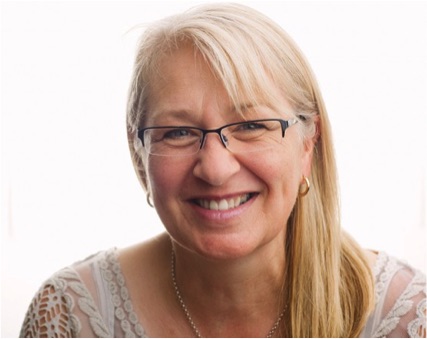Developmental interventions on the self and social behaviour of adolescents - Using DNA-v to develop flexibility, mindfulness and compassion
Developmental interventions on the self and social behaviour of adolescents - Using DNA-v to develop flexibility, mindfulness and compassionDevelopmental interventions on the self and social behaviour of adolescents - Using DNA-v to develop flexibility, mindfulness and compassion
Workshop Leader: 
Louise Hayes, Ph.D.
This workshop will focus on how to use the developmental model of ACT, called DNA-V, to help adolescents practice compassion, mindfulness and flexibility with their self and social behaviours.
DNA-v is the distillation of cutting edge science and theory into simple processes that can help young people live well, but it isn’t just for young people, it is also for parents, teachers, mentors etc. This model uses research from evolutionary science, behavioural science, ACT, compassion research, and positive psychology to create a new paradigm for promoting vital living. This makes DNA-v a wholly Contextual Behavioral Science model based on growth and development. It can be used in both educational and clinical settings.
In this workshop, we will focus on understanding and intervening with the developing self, including: how to work with an abusive self, and how to use compassion and mindfulness exercises to create a flexible self. We will also focus on the social world of adolescents, including: how to work with attachments and nurturing, how to build friendship skills, and how to build social groups.
Participants will be provided with prior material on basic DNA-v concepts – reading and videos – so that this workshop can jump straight into skills practice in the areas of self and social behaviours.
This workshop aims to help professionals to:
- Develop functional self-concepts
- Deal effectively with stress and negative feelings about the self and others
- Develop self-compassion
- Build deeper, more satisfying relationships
- Engage in the six patterns of activity that build well-being and vitality
DNA-V is based on the new book, the Thriving Adolescent, by Louise Hayes and Joseph Ciarrochi. Whilst the book is targeting adolescents, it presents a model that can be used to promote positive development at any age.
About Louise Hayes, Ph.D.:
Louise Hayes is a clinical psychologist who focusses on using acceptance, mindfulness, and positive growth treatments. She is well known for her work using Acceptance and Commitment Therapy for young people and is currently the President Elect of the Association for Contextual Behavioural Science. Louise uses acceptance and mindfulness based treatments with young people in schools and clinical settings. She is an author, international speaker, a senior fellow with The University of Melbourne and Orygen, and a peer reviewed Acceptance and Commitment Therapy/Training (ACT) trainer. She is the co-author of the best-selling book, Get Out of Your Mind and into your Life for Teenagers: A Guide to Living an Extraordinary Life, and the newly released book, The Thriving Adolescent: Using Acceptance and Commitment Therapy and Positive Psychology to Help Teens Manage Emotions, Achieve Goals, and Build Connection. Together with Joseph Ciarrochi she conducts research and treatment development; the latest work is DNA-v, a treatment model for young people. Louise is an active philanthropist, taking mental health professionals into the Himalaya to develop their mindfulness skills and raising funds for poor children in remote Nepal. For more information on Louise go to – www.louishayes.com.au or www.thrivingadolescent.com
Learning Objectives:
The attendee will be able to:
- Describe the DNA-v developmental model with young people
- Explain how to apply DNA-v to the self with adolescents
- Demonstrate how the DNA-v model can also be used for understanding and building relationships
- Describe how one can apply DNA-v with adult carers and teachers
- List 3 of the theoretical underpinnings of DNA-v
- Discuss how self-view influences our DNA and can be an important change agent
- Discuss how social-view (our attachments and social relationships) can influence our D, N and A
- Design a plan for using DNA-v with a young client
- Discuss set up and application of DNA-v with groups of young people
- Analyze a case conceptualisation on the self and social behaviours of adolescents
Target Audience: Intermediate, Clinical
Components: Experiential exercises, Didactic presentation, Case presentation, Role play
Package Includes: A general certificate of attendance, lunch, and twice daily coffee/tea break on site.
